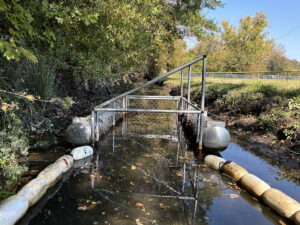News
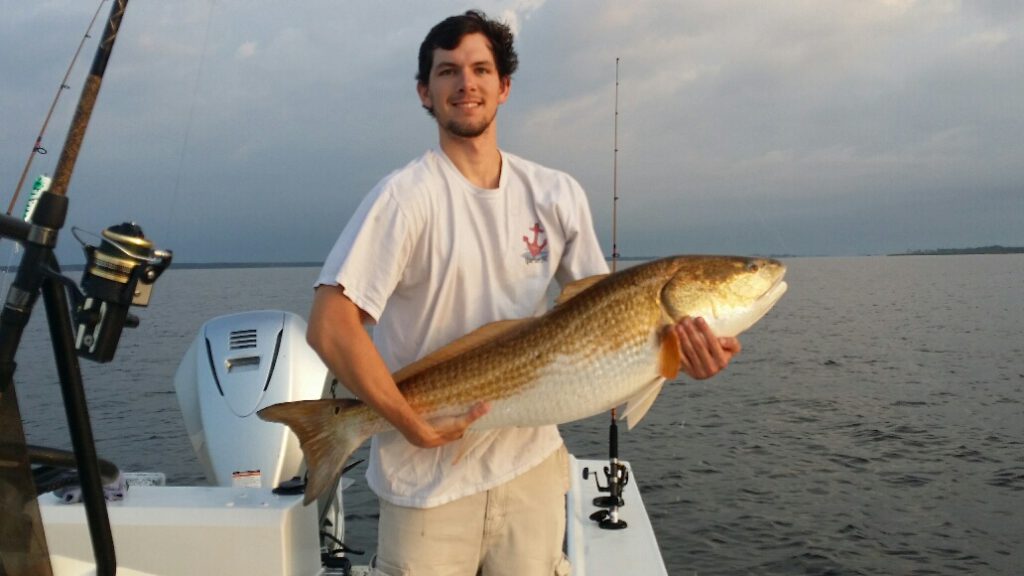
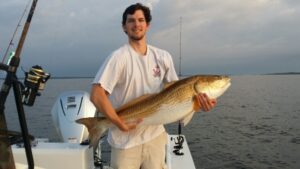 Is it safe to swim? Is it safe to eat the fish I caught? My dog drank some of the water, will he be okay? These are just a few of the routine questions our Riverkeepers are asked each year, particularly during the summer months. Our 2017 newsletters will begin to explore these questions in greater detail along with the potential impact of a changing climate.
Is it safe to swim? Is it safe to eat the fish I caught? My dog drank some of the water, will he be okay? These are just a few of the routine questions our Riverkeepers are asked each year, particularly during the summer months. Our 2017 newsletters will begin to explore these questions in greater detail along with the potential impact of a changing climate.
In 2016 we witnessed blooms of harmful algae in the Pamlico River and adjacent creeks that may have been unprecedented. They are called harmful because exposure to these blooms can result in adverse health effects to humans and animals. The nearby Chowan River has experienced several blue-green algal blooms like this for the past two years. In 2014, drinking water supplies on the Cape Fear River were impacted by harmful
toxic algal blooms and 400,000 people in Toledo, Ohio were without drinking water for several days due to a toxic algal bloom there.
During last summer’s investigations, our three Riverkeepers discovered that toxins produced by some blue-green algae are not well studied in our region. Attempts to gather information and advice for the public from state as well as local health and environmental agencies revealed a need for greater coordination between governmental agencies and the non-profits that serve our communities through outreach and engagement. Just recently the Environmental Protection Agency, for the first time, is proposing standards for toxins produced by algae to protect public health. The development of these standards is an important first step for adequate monitoring, reporting, and appropriate science based guidance as to when swim advisories should be announced, something that is currently lacking in North Carolina.
In addition to the potential health impacts of harmful algal blooms, health experts advise that excess consumption of some species of fish may be harmful due to contaminants such as mercury or PCB. This information may not be widely known by recreational and subsistence fishermen/women. In addition to those known contaminants, information is lacking on the potential health issues from consuming fish and other seafood affected by harmful algal blooms.
In this newsletter, our Lower Neuse Riverkeeper will explore the impacts of climate change on our water resources. The spring newsletter will tackle the questions regarding fish consumption, followed by harmful algal blooms and safe swimming in the summer, and seafood consumption for our fall edition.
Download the PDF version of the newsletter here: SRI Winter 2017 Newsletter, or read below for more articles from the Winter 2017 Currents!
Have a question? Send it to us and we’ll strive to find you an answer!
Related News
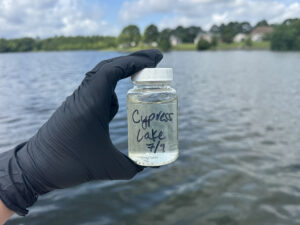
Specialist investigates lake connection to mysterious skin rash
July 10th 2025
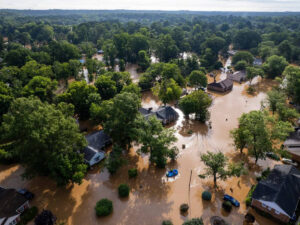
Riverkeeper: Central NC flooding part of a much larger issue
July 10th 2025

N.C. Governor vetoes bad rulemaking bill
July 10th 2025

Riverkeeper, program director ‘Growing More than Rain Gardens’
July 10th 2025

Volunteer coordinator goes ‘fishing’
July 10th 2025
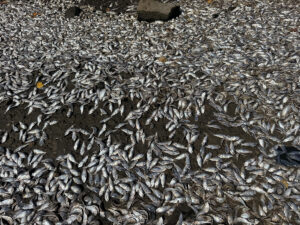
Neuse fish kill expected to extend beyond holiday weekend
July 3rd 2025
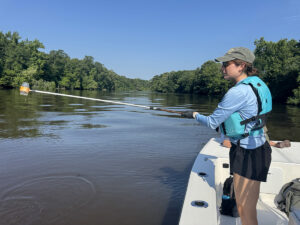
Swim Guide fails prompt Maple Cypress investigation
July 3rd 2025

Riverkeeper, town partners root out source of Smithfield sediment pollution
July 3rd 2025
